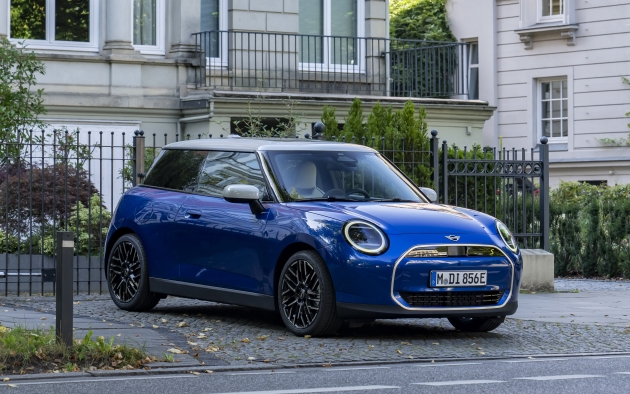
BMW Group is putting more than 600 million pounds (A$1.168 billion) into Mini United Kingdom factories at Oxford and Swindon for EV production.
“With this new investment we will develop the Oxford plant for production of the new generation of electric Minis and set the path for purely electric car manufacturing in the future,” says BMW AG management board member responsible for production Milan Nedeljković.
The Oxford plant is gearing up to build two new electric models from 2026, the Mini Cooper three-door and the compact crossover Mini Aceman.
By 2030 production volume will be exclusively electric and the BMW Group will have spent more than three billion pounds (A$5.8b) on its Swindon, Hams Hall and Oxford plants since 2000.
This development has been supported by the UK Government and will help to secure jobs at the Oxford manufacturing plant and at the body-pressing facility in Swindon.
The Oxford plant celebrated its 110th anniversary this year and has been successfully producing the current Mini Electric since 2019, where it is fully integrated into the production line with conventional internal combustion engine (ICE) models.
“Oxford is and remains the heart of the brand,” says Mini brand head Stefanie Wurst, adding she’s delighted the two new, fully electric are also being produced there.
The factory will reach a production capacity of about 200,000 cars annually in the medium term, with ICE and battery electric vehicles (BEVs) initially being built on the same production line.
From 2030, the Oxford Plant will produce electric Mini models exclusively.
In a few weeks, production of the new Mini Countryman will begin at the BMW Group plant Leipzig. This larger crossover model will be offered with both pure electric drive and combustion engines.
Production of the next generation electric Mini Cooper three-door and Mini Aceman will start in China at the new manufacturing plant in Zhangjiagang, Jiangsu Province, based on a joint venture with Great Wall Motor, with exports from early 2024.








